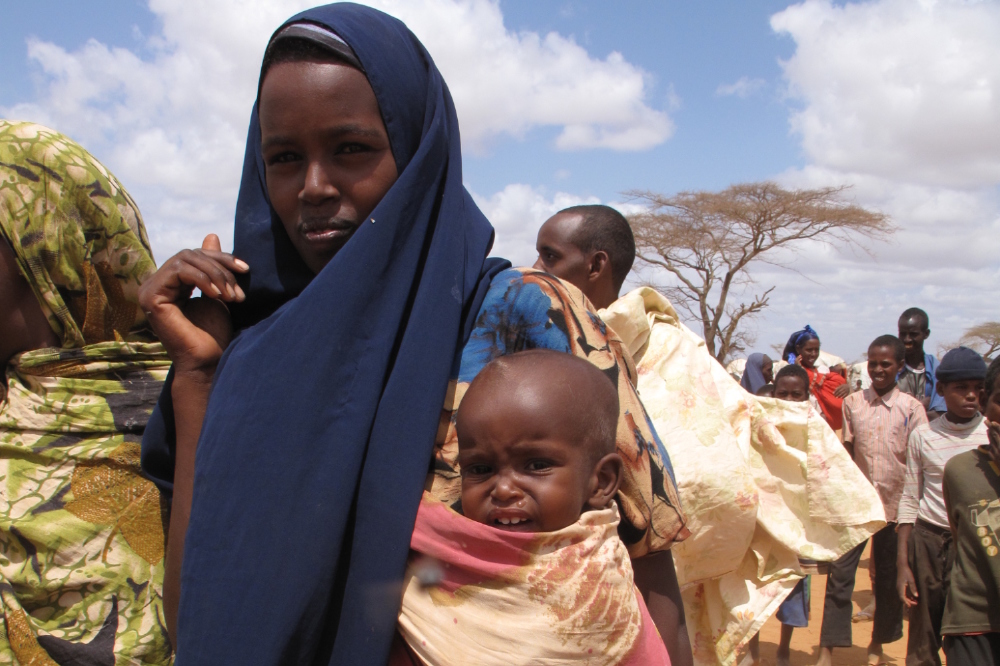
Somali Women
The women who can't give consent for their own c-sections
Amal Ahmed Mohamed, Director of Somaliland Family Health Association.
Volunteering at the hospital in Hargeisa changed my life. The Edna Adan University Hospital had a reputation for being the best maternity hospital in Somaliland because of the number of difficult cases referred there. The experiences I had there challenged everything I had taken for granted.
Women, who’d been in labour for days, were brought in on the backs of trucks after having travelled hundreds of kilometres on rough, rocky road. Some died on the way, some died shortly after they were brought in and a precious few were saved. The health system of Somaliland has so many problems, one doesn’t know where to begin: critical shortages of midwives, nurses, doctors and other health care workers, not enough facilities at community and regional levels, nomadic populations that makes it that more difficult to assist women; only a handful of major roads, high illiteracy rates, and high unemployment are only some of the issues that make it difficult to save the lives of mothers.
That is why I was dumbfounded when I came across cases where women who had endured all these difficulties and could still be saved by c-section, but could not give their own consent for the surgery and had to have the permission of their husband or their father.
In one incident a young woman of about 18, pregnant with her first baby, and had been in labour for two days. Although she was experiencing contractions her labour was not advancing and she was in great pain. At the end of the second day, the baby’s heart rate began to drop. Doctors advised a c-section. The young woman and her family were informed. Her father refused to give consent for the surgery. Her husband, although not keen on the idea was willing to listen to the doctors, but the father refused and threatened hospital staff if they proceeded with the surgery. A process of pleading began, meanwhile the health or the mother and baby’s situation was getting steadily worse. After several hours, other family members convinced the father and the surgery was done. The mother’s life was saved but the baby was lost.
In another hospital, a woman pregnant for the 12th time with eight living children had prolonged labour and needed surgery. Her husband refused to give consent and threatened the staff with his gun. The hospital released the sick woman to her husband. He came several hours later to the Edna hospital after trying to get a second opinion without success and now desperate for help. By this time the woman was in critical condition. Luckily she was saved. In yet another case, a woman’s husband and father both could not be found and an uncle had to be located to sign the consent form. The list goes on. These were the lucky ones. The reasons for men refusing consent? They think a woman will not be able to bear many children if she has a c-section or that the doctors just want more money – or that women have always given birth naturally and why can’t they just continue to do it that way?
In part it was issues like this that inspired the formation of SOFHA. So many health issues are not just health issues but are legal, financial, and social issues. The women who cannot give their own consent for c-section cannot decide to take birth control either. We immediately embarked upon winning more rights for women regarding their health. Giving their own consent for c-section was a great starting point.
We raised this issue at every meeting. We shared our concerns with the Ministry of Health and the Ministry of Religious Affairs. We discussed it with women’s groups, international organizations and donors. After 2 years of this advocacy work the Ministry of Health created a provision that women could give their own consent regarding emergency c-section if the husband or father cannot be found, and it further gives doctors permission to perform surgery if the woman is unable to. This provision was drafted quickly, and without wide consultation.
This provision is not what we were working towards and it falls very short of what we were aiming for. Even this small concession is not widely known by the general public. Our next step is to advocate for full rights for women to give their own consent for c-section. It’s incredible that a basic right taken for granted in so many countries is not found here. I have personally committed myself to ensuring that Somaliland women know the rights enjoyed by their counterparts in other countries and have access to informed choice about issues regarding their own health, bodies and lives.
Amal Ahmed Mohamed left her country as a child during the civil war and returned home after being away for 20 years. “The plan was to live in Somaliland for a year and then go back to our ‘real life’,” she says. “6 years and 2 babies later, I can’t imagine living anywhere else.”

